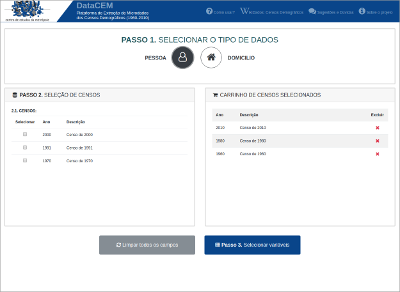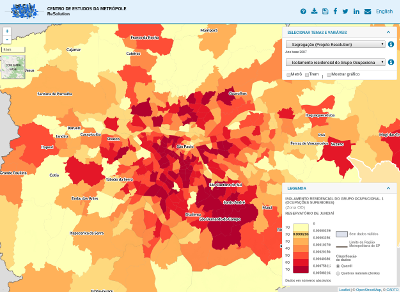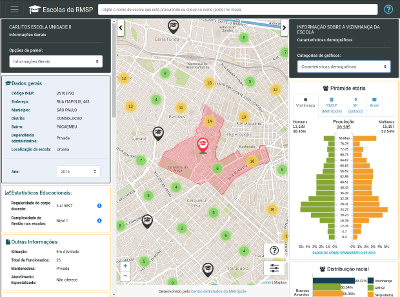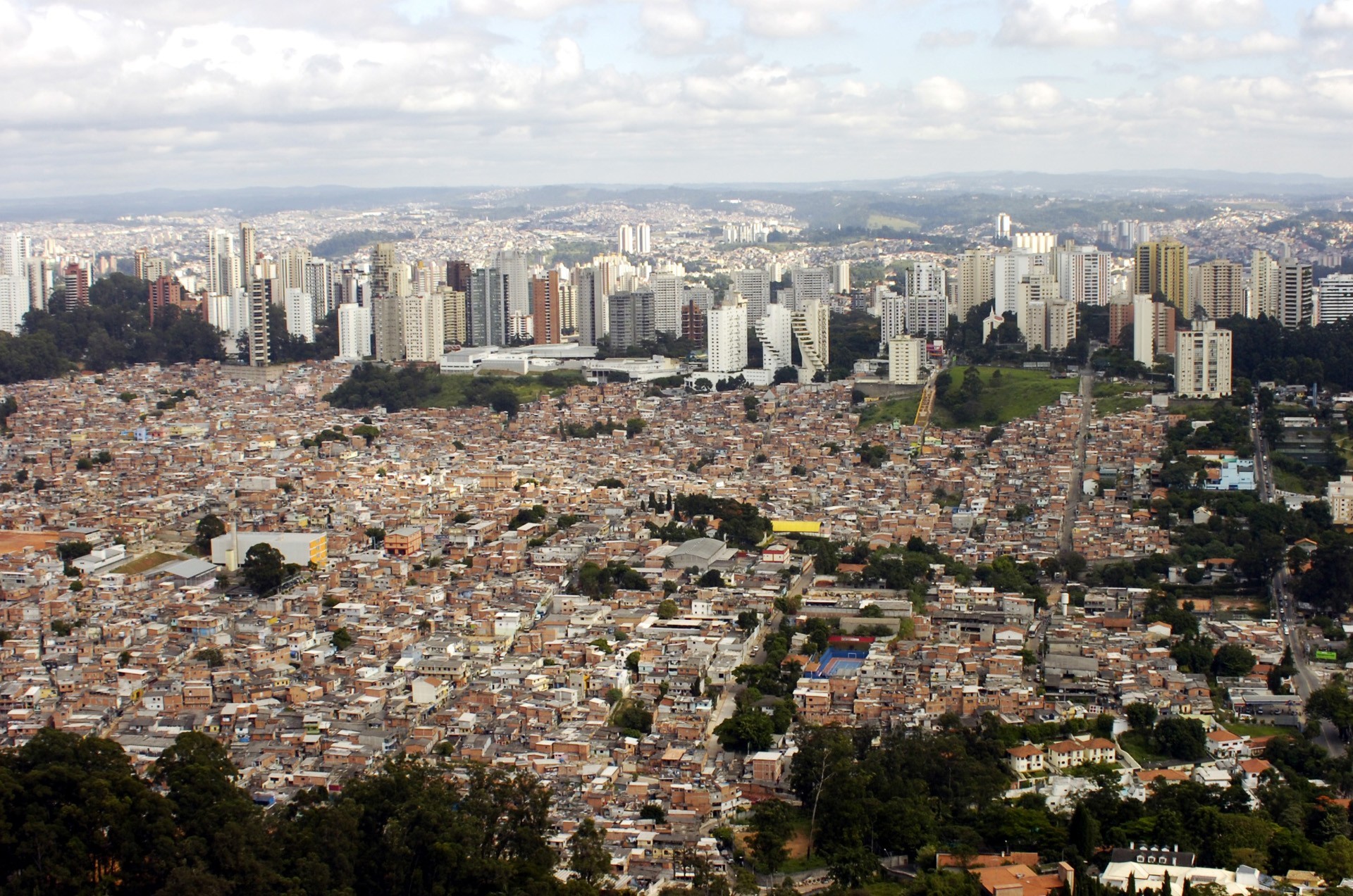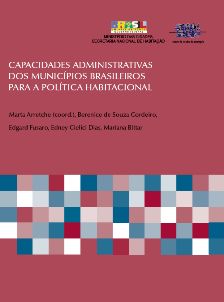1. DataCEM: an open platform enabling everyone to access Census micro-data from 1960-2010
This data extraction application allows user-friendly access to the 1960, 1970, 1980, 1991, 2000, and 2010 Demographic Census micro-data, as well as supplementary documentation, handouts, and technical notes. Available in Portuguese and English, DataCem reduces individual data acquisition costs for time series on social and demographic aspects of Brazilian history. The totality of census information from 1960 to 2010 for Brazil, made compatible and standardized, is also available in full in database format.
Access: http://200.144.244.241:3004/
